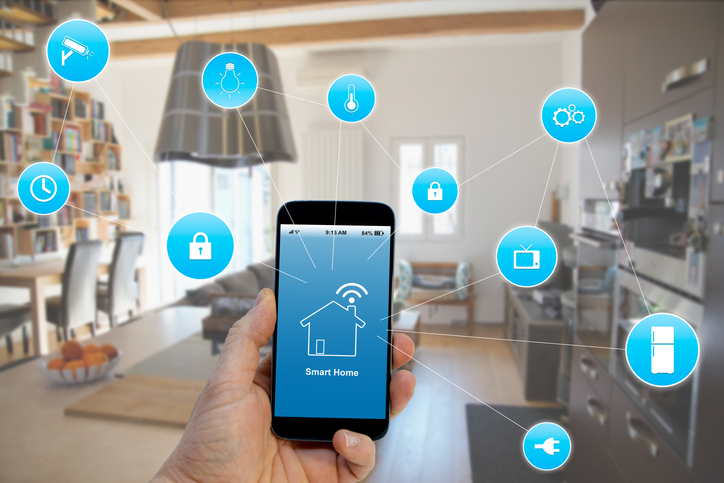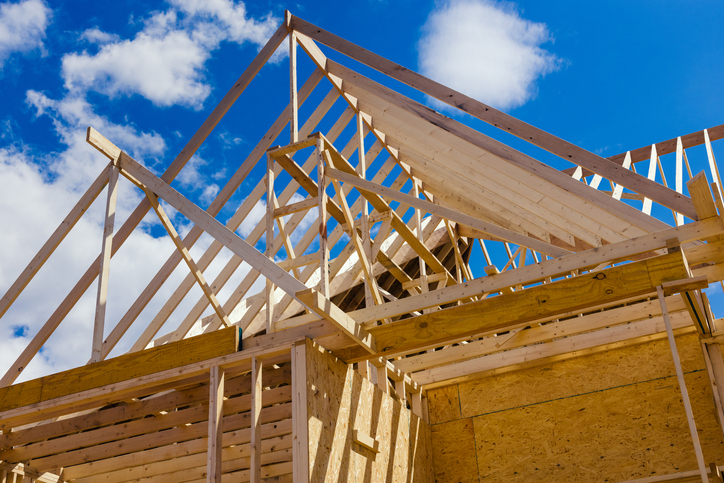
Smart home technology is growing more popular each day. From voice assistants to video doorbells to smart thermostats, consumers enjoy the day-to-day efficiency that smart home technology has to offer.
“The expectation that you go into a home and it has some sort of smart home component is more of an expectation than it used to be,” says NAR Director of Emerging Technology Dan Weisman.
In 2018, 32% of Americans reported owning smart home products, according to Coldwell Banker Real Estate’s most recently conducted Smart Home Marketplace survey. This number was up from 24% in 2017, and, considering the ever-popular market for these products, has likely increased even more since.
Smart home technology is not only sought after for its help with simple daily tasks from its ability to make grocery lists to telling you the weather, but it is also highly desired by homebuyers for energy efficiency and safety.
The same study asked homebuyers which smart home devices they would prefer to have pre-installed. Smart thermostats were most desired with 77% of homebuyers saying they would want them, followed by smart fire detectors at 75%, smart carbon monoxide detectors at 70%, smart cameras at 66%, smart locks at 63% and smart lighting at 63%.
With energy efficient and security smart home devices being the most desired by homebuyers, these are often the technologies that add the most value and interest from homebuyers. Many sellers opt to leave these devices in their homes instead of taking them with them.
Americans have started focusing on and prioritizing their safety and security when it comes to choosing smart home technology, but with new technology entering homes comes the rising concern for privacy.
Weisman says there are ultimately two sides of the coin when it comes to concern for privacy regarding smart homes. On one side, some people acknowledge that between all of their existing devices, online accounts and internet activities, a great deal of their data is already out and exposed whether they like it or not. Adding smart home technology doesn’t change that.
On the opposite side, many others don’t want any of their additional data being shared and don’t want technology persuading them or telling them what to do.
Both sides are valid, and it’s ultimately up to individuals whether they choose to use smart technology in their homes.
“No matter what and how you feel about smart home devices, the biggest thing is to set your devices up in a secure way,” Weisman adds. This includes setting up two-factor authentication, creating secure passwords/passphrases and using private networks whenever possible.
Topics
Member Discussion
Recent Articles
-
7 Flowers for Curb Appeal in Pennsylvania
- May 6, 2025
- 3 min. read
Planting native perennials can be a great, low-maintenance way to boost curb appeal. Here are seven that thrive well in Pennsylvania.
-
Study Shows Pa. Has High New Construction Premiums
- May 5, 2025
- 3 min. read
The Affordability and Homebuilding: State-by-State Report Cards showed that states in the Northeast and West, which generally have stricter zoning and land use regulations, received some of the lowest grades in affordability and homebuilding.
-
New Cumberland Valley Neighborhood Preserves Nature, Plans for 1,000 Homes
- May 2, 2025
- 2 min. read
Grange was transformed from a century-old dairy farm into a modern neighborhood that meets the needs for multigenerational living and various other lifestyles.
Daily Emails
You’ll be the first to know about real estate trends and various legal happenings. Stay up-to-date by subscribing to JustListed.



